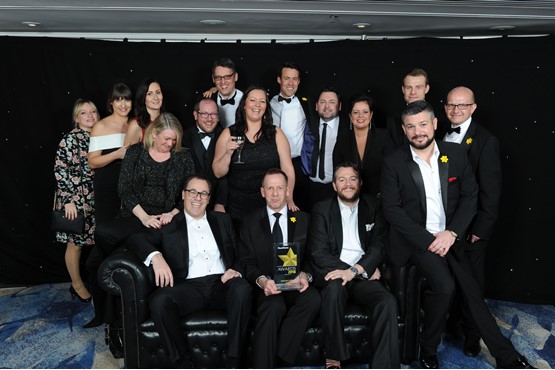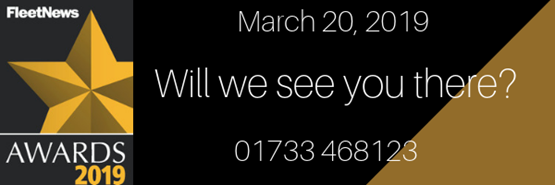As one of the first leasing companies to describe itself as a provider of business mobility solutions, Alphabet (GB) has long positioned itself as one of the most forward-thinking businesses in its sector.
This is evident in its approach to electric vehicles. In 2013, it launched AlphaElectric – a four-stage process to help organisations transition their fleets to electric and hybrid vehicles – and enhanced this recently with a mobility consulting tool.
This in-vehicle data logger helps fleets identify not only which vehicles and journeys can be electrified, but also where charging solutions need to be located.
Alphabet’s pro-active approach is reflected by the number of EVs and hybrids on its risk fleet: currently it has more than 10,000, making up approximately 8% of its portfolio.
Last year’s FN50 report stated that it had, at the time of publication, delivered 8.9% of the UK’s total number of OLEV grant-eligible electric and plug-in hybrid vehicles registered (private and business usage combined).
Demand for the technology has continued to grow, says Nick Brownrigg, chief executive officer of Alphabet, which is part of the BMW group. “Last year our order rate of EVs and hybrids was 8%, and this year it is currently at 11%,” he adds.
Alphabet is also taking an active role in ensuring the Government’s Road to Zero strategy progresses.
“Road to Zero says that by 2040 every vehicle registered has to have zero emission capability,” says Brownrigg.
“As Alphabet, but also as a standing member of the BVRLA (British Vehicle Rental and Leasing Association) and myself as a member of the committee of management of BVRLA, we need to help the Government support that initiative with proper policies and incentives.”

Fleet News: What steps have you taken to improve your offering to customers?
Nick Brownrigg: We set a foundational strategy in 2016 aimed at focusing on achieving balanced growth through a customer-first approach.
There were three fundamental pillars to the strategy. Customer focus was the central one, balanced growth was the financial pillar in that if we achieve it then it’s good for us and good for the customer.
The third was trying to lead the way with mobility solutions for the future, which is the bedrock of Alphabet and where the brand stands in the market.
The foundation to all three was that we wanted to do this by leading with the innovation and quality of our people.
We felt if we could invest there, then that ultimately would become a differentiating factor and the quality of Alphabet would be measured not only by what we could do and what we could offer, but in the way we do it.
FN: One of your stated ambitions was to focus on the quality of business rather than quantity. What effect did this have?
NB: In the middle of 2016, we’d had a continuous period of increasing new car sales, of increasing used car sales and residual values had largely been in the ascendancy.
Life was good for most leasing companies in that sense because the critical determinant of profitability for a leasing company is the remarketing performance versus the residual value that had been set.
There is a cycle where, for whatever reasons, values top out and our read of it in 2016 was that we were approaching that point.
We took the decision that we wanted to protect our shareholders’ balance sheet as much as we could by writing business which fell into a certain category type.
It wasn’t that we didn’t want growth per se, but the growth we were searching for needed to fit a certain quality criteria.
We were looking at things like the opportunity to embed service maintenance and repair in contracts, and those opportunities typically come with longer lease cycles.
From a risk management perspective, when you see market shifts where used vehicle values fall, as we did see through the latter part of 2016 and right throughout 2017, then the impact is higher with shorter cycle leasing.
I am not saying we do not want to take up an element of our new business with two-year leases. There are very good reasons why we would want to continue to do that.
But history has confirmed that it was the right thing to do. It has put us in a position now where, from the point of view of achieving targets, we are very confident we have a sustainable business with a solid balance sheet.
From a customer’s perspective, they do not want a leasing company working with them in a yo-yo fashion. They want consistency, they want sustainability and they are certainly happy to know that your business is on a financially solid platform.
FN: Are you seeing a growth in customers interested in mobility solutions?
NB: Customers are becoming more questioning of why they are using vehicles in the way they are, and we find them extremely open to us presenting them with a view based on analysis of what might make for an alternative.
Primarily the fleet sector remains a market where it is a vehicle being taken for a specific purpose, usually over a set term.
There are variations coming in now in terms of offers in the market, and one of the variations which we have significantly expanded is our corporate car-sharing scheme AlphaCity.
Through this, we can say to a customer that, rather than having a set number of vehicles that are sitting as their liability, we can provide something which is actually quite flexible.
If they need three vehicles today but five vehicles next month, we can augment that offer because we operate a rental business as well.
We can also demonstrate that those three AlphaCity vehicles could displace six pool cars, so that is a mobility solution in itself and it doesn’t create a single asset, single driver scenario because you’ve got several assets and many drivers in this case.
The market opportunity for that type of solution is only going to increase.
FN: Earlier this year, Alphabet extended AlphaCity to brands other than Mini and BMW. What are the benefits of this?
NB: The primary benefit is one of wider choice. Alphabet is very much a multi-marque business and our belief is that our customers ought to be able to make their own choice on what type and brand of vehicle they run with. It has also allowed us to offer light commercial vehicles.
We’ve had some very encouraging signs since we expanded the choice and if you put a lower priced vehicle into that mix, it also gives us access to new customer groups who are operating more from a price point of view, so it has been a win-win situation.
Alphabet celebrated its 20th birthday last year, and Brownrigg is determined the business will continue to mature as one of the country’s leading leasing companies.
“I described it to the staff that, at 20 years old, you are one step off being a fully blown adult,” he says. “We’d absolutely grown into our adult frame, but we still needed to fill out.
“There was an element of adolescence about the business and the way in which we needed to mature was to put absolute focus on the quality of our customer service provision.
“We needed to be able to stand proud of that and know that our quality is achieving results. That has been the journey we have been on and will be the journey we continue to be on for some time.
“This business has a very strong vision, we want to be the outstanding business in the sector based on the quality of what we do, and that quality is defined by how we do things and the product and services we offer.”
Judges’ comments
Alphabet has been “brutally honest” about the areas it needed to improve and taken action, resulting in high praise from customers, the judges said. It continues to push the uptake of ultra-low emission vehicles and take the lead on mobility services.
An initiative to generate employee-led ideas also impressed.




















Login to comment
Comments
No comments have been made yet.